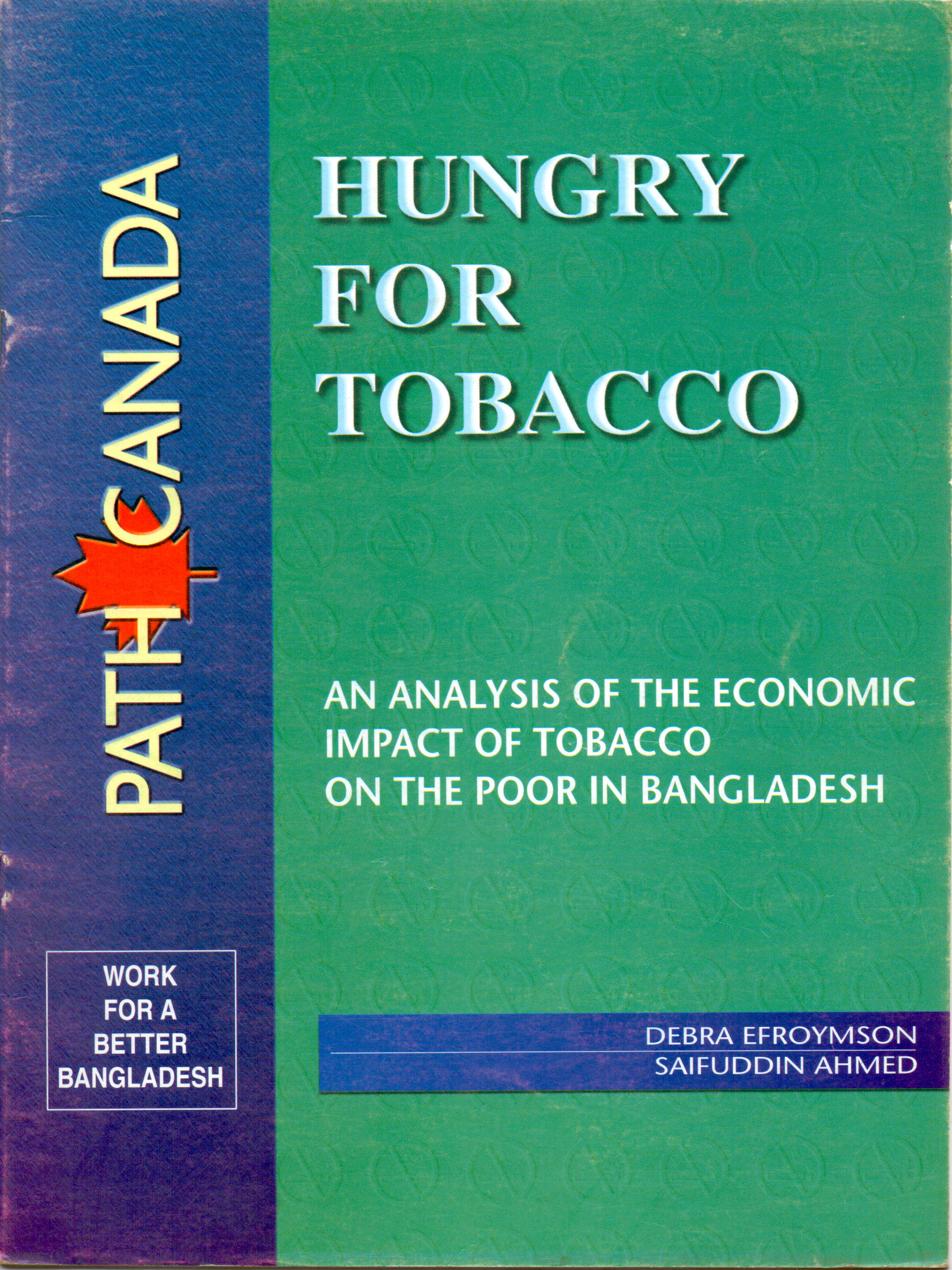
Hungry for Tobacco_English
Work for a Better Bangladesh (WBB) Trust was founded in December 1998. The initial programs of WBB Trust were tobacco control and environment (discouraging polythene shopping bags and addressing noise pollution). Over the years, WBB Trust added a program on gender (now under Economic and Social Justice). Our tobacco control program is now subsumed under Health Rights, with a broader focus on non-communicable diseases. Our environment work is now subsumed under Livable Cities, with a focus on urban environments.
Poverty in Bangladesh is widespread, affecting half the population and causing daily suffering to tens of millions of people. National development is slowed by the poor health of the population: UNICEF estimates that Bangladesh loses the equivalent of more than 5% of its GNP due to malnutrition.
Tobacco consumption worsens poverty both on the individual and national level. Tobacco control policies are essential to improve the life of the poor and for the economic development of the nation.
A reduction in tobacco consumption in Bangladesh would lead to several significant gains as people switched from purchasing tobacco to other goods. If tobacco were no longer consumed in Bangladesh, the following economic gains would be
anticipated:
- Savings in foreign exchange for import of tobacco of almost US$15 million per year.
- A potential increase in employment in the formal sector of 18%.
- Large increases in household investment in housing, education, and health care.
- 10.5 million fewer children going hungry.
- 350 fewer deaths from malnutrition of children under age 5 each day.
While tobacco will not disappear overnight, its use could decline sharply if strong policies were implemented. Significant declines in tobacco use would translate to significant gains: more jobs, more individual investment in basic needs, and fewer children needlessly going hungry and dying of malnutrition. Download this book.
Other Publication
22nd August, 2023
1st May, 2023
2nd February, 2023
1st February, 2023
26th July, 2022
Working Area

